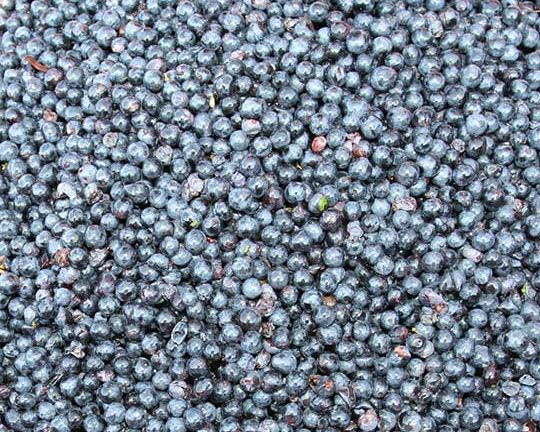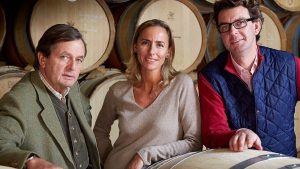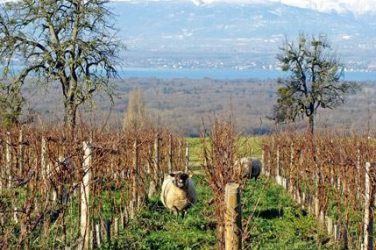
First there were organic wines. Then we heard about biodynamic wines. Finally, in the past ten years, a new concept has surfaced, that of “natural wine”. While nowadays it is fairly simple to understand what qualifies as ‘organic’ or ‘biodynamic’, the term ‘natural’ is much more difficult to grasp. Below, we try to help you see things more clearly.
Although the notion of natural wine is much more difficult to understand than that of organic or biodynamic, this is first and foremost for a purely technical or administrative reason: while organic and biodynamic wines are labelled by independent certification agencies (Demeter, Ecocert, Biodyvin, etc.), natural wines have no official label, even though the AVN (Association of Natural Wines) has written a cahier des charges, they don’t have the same means of control as organic or biodynamic certification bodies.
It’s worth noting that since the emergence of diverse environmental schools of thought, the word ‘natural’ has become as good as magical, adorned with every possible virtue. On their website or in their communication, you will see many winemakers who are not at all organic but like to declare that their work is carried out “with total respect for nature”, which, of course, doesn’t mean anything… However, for the past half-century, as consumers in general, and wine enthusiasts in particular, we have the impression that what we eat and drink is better – in terms of taste or at least better for our health – when these products are as natural as possible. Labels such as “without preservatives” or “without colouring agents” are supposed to flatter consumers’ propensity for all that is natural. This trend has become ever more prevalent, leading producers to follow very precise criteria allowing them to label their products as organic. In very simple terms, for wine, this means that vines have been cultivated without any synthetic herbicides or insecticides. Organic labels have however remained silent on the subject of the actual winemaking process…
Short digression: in comparison to other pre-packaged food products, where every ingredient is included on the packaging in minute detail, the label on a bottle of wine (or beer, cider, etc.) is well and truly silent. We know that there is such-and-such amount of alcohol and that it contains sulphites (without giving precise numbers…), but other than that, radio silence. Did the producer acidify his wine, did he add tannins, wood shavings, enzymes, bentonite, charcoal (almost 50 products are authorised in ‘conventional’ wines), did he chaptalize it? There’s no way of knowing…
It’s therefore this dual concern – the desire for a return to what is ‘natural’ and transparency regarding what is actually in a bottle of wine – that led to the new trend of natural wines, as it defines itself essentially as “with no inputs added”. The label can therefore stay silent, as it has nothing to hide!
The AVN has put together a cahier des charges (production specification) for natural wine, which can be summarised as follows:
- The objective of AVN winemakers is to produce wines “produced using natural vinification”, that’s to say, with no added inputs.
- The vines are farmed in such a way that respects organic or biodynamic agriculture
- Harvests must be done manually.
- Only indigenous yeasts are used in the winemaking process.
- The grapes’ original constitution cannot be voluntarily modified, and no recourse to physically ‘brutal’ techniques (inverse osmosis, tangential filtration, flash pasteurisation, thermovinification) is authorised.
- No sulphites or any other inputs can be added (the maximum threshold for sulphur is 10mg/l, which is the maximum amount that can be produced as a natural result of alcoholic fermentation.)
For wine enthusiasts, the last point is often the most important, particularly the refusal of sulphur, because, for the most part, many high-quality domains have the same practices regarding work in the vineyards, harvests, yeasts, or avoiding brutal manipulation of the wine during its production.
The central issue regarding natural wine is therefore the presence of sulphites. What’s more, wine enthusiasts will often talk about ‘wine without sulphites’ to describe a natural wine. If it hasn’t happened to you yet, just listen to an impassioned debate between partisans of ‘zero sulphur wine’ and those who enjoy ‘conventional’ wines. The former will claim that they cannot drink wines which give them a headache, laden with chemicals and whose aromas are locked away by the sulphur, whereas the latter will ask themselves how you can drink white wines which resemble cider and red wines that seem oxidised even though they’ve only aged for two years in the bottle!
The reality of the sulphite issue is much more complex than it might seem at first glance. Sulphur being first and foremost a preservative and bactericide, in a perfect world we could easily go without it. With a ripe, perfectly healthy harvest, without any trace of rot, a clinically clean cellar, and little handling of the must, adding no sulphur would be feasible. We’re talking about ‘added sulphur’ here, as the fermentation process itself produces a small amount of natural sulphur. However, these conditions are not always possible, and there are many producers who, despite following the natural wine philosophy very closely, don’t think twice about adding almost homeopathic amounts of sulphur to their wines so that they have more chance of staying stable once in the bottle. Should we banish them from the natural wine family just for that? Of course not, as it would be extremely sectarian. Yet the natural wine scene has unfortunately engendered some zero sulphur tyrants, who aren’t afraid of talking about great terroir when a wine is completely ‘supernatural’, teeming with serious faults, even for a tolerant taster!
Beyond the excesses inherent to all fashions, the fact remains that this alternative way of producing wine, originally pioneered by a small group of ‘gentle dreamers’, can be extremely profitable for many winemakers. Faced with two, good quality wines, who wouldn’t prefer the one with the least possible amount of additives, whose grapes were cultivated without pesticides or other synthetic products, and whose amount of added sulphur is minimal, but has retained all of its ‘drinkability’? Nowadays, under the influence of natural producers’ sometimes dogmatic practices, it’s clear that the good winemakers add much smaller amounts of sulphur to wine during production. Ultimately, we can’t complain, as fewer sulphites means wines which are both better for our health and much freer in their aromatic expression.
Natural wine producers
Here is a selection of winemakers featured on the website vinnaturels.fr, whose cahier des charges is a little less strict than that of the AVN (Association of Natural wine), particularly concerning the amount of sulphites added, which are nonetheless very low…
| Alsace– Vignoble du Rêveur (Mathieu Deiss)
– Pierre Frick – Domaine Binner – Domaine Gérard Schuller
|
Beaujolais– Domaine Georges Descombes
– Domaine Jean-Paul Thévenet
|
| Bordeaux– Château Le Puy
– Les Closeries des Moussis – Château Meylet
|
Bourgogne– Alice et Olivier de Moor
– Domaine Derein – Domaine Fanny Sabre – Domaine des Vignes du Maynes
|
| Jura– Domaine Overnoy-Houillon
– Domaine Stéphane Tissot – Domaine des Miroirs – Domaine Ganevat
|
Languedoc/Roussillon– Domaine Léon Barral
– Domaine du Bout du Monde – Domaine du Possible – Domaine Monts et Merveilles – Bruno Duchêne – Casot des Mailloles – Domaine Le Temps des Cerises – Domaine des Foulards Rouges – Domaine Rie et Hirofumi Shoji – Clos Fantine
|
| Vallée de la Loire– Domaine Olivier Cousin
– Domaine Alexandre Bain – Domaine de La Paonnerie |
Provence– Domaine Milan
|
| Vallée du Rhône– Domaine de la Ferme Saint-Martin
– Domaine de La Roche Buissière – Domaine de l’Anglore – Domaine Thierry Allemand – Domaine Gramenon – Dard et Ribo |
Savoie– Domaine Marie et Florian Curtet
– Domaine des Côtes Rousses – Domaine Belluard
|
| Sud-Ouest– Mas del Périé |
See all natural wines currently for sale on iDealwine
Not yet registered to buy wines with us? Sign up here for free!




